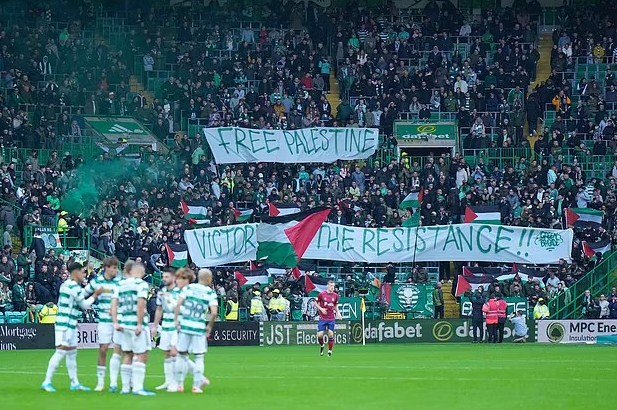UEFA and FIFA silent on the violence that killed hundreds in Israel and Gaza
Jewish football fans have spoken out on their disappointment at the silence from the footballing world in the wake of the horrific scenes in Tel Aviv and Gaza this week. The UEFA and FIFA, the governing bodies of European and world football respectively, have not issued any statement or condolence to the victims of the Hamas attack on Israel or the Israeli retaliation that killed hundreds of civilians in Gaza.
The UEFA only mentioned the “current security situation in Israel” when it postponed Israel’s upcoming matches in the Nations League and World Cup qualifiers, but did not acknowledge the loss of life or express any solidarity with its member nation. Israel is hosting the UEFA under-19 European championship in 2027 and has a vibrant football community that is mourning the death of a former player Lior Asulin, who was murdered by Hamas gunmen at a music festival near the Gaza border.
The FIFA president Gianni Infantino has also been silent on the conflict, while posting on Instagram about his visit to the Qatar F1 Grand Prix, his attendance at the wedding of former Brazil star Ronaldo, and various birthday greetings. He also issued condolences and prayers to the victims of the earthquake in Afghanistan over the weekend, but did not mention anything about the Middle East.
Jewish fans feel betrayed by the lack of support from the “football family”
Many Jewish fans have expressed their frustration and anger at the lack of support from the “football family” that claims to stand for diversity, inclusion, and human rights. They feel that their lives and suffering are being ignored or devalued by the sport that they love and follow.
One of them is David Bernstein, a former chairman of the Football Association and a lifelong supporter of Manchester City. He told Sky News that he was “very disappointed” by the silence from UEFA and FIFA, and that he felt “let down” by the sport. He said that he expected more from football, which has a powerful voice and influence in society.
Another Jewish fan is Daniel Sugarman, a journalist and a Tottenham Hotspur fan. He wrote an article for The Jewish Chronicle, where he said that he felt “abandoned” by football, which has shown solidarity with other causes and tragedies in the past, such as Black Lives Matter, LGBT rights, and anti-racism campaigns. He said that he was not asking for football to take sides in the complex political situation, but to simply acknowledge the human suffering on both sides of the conflict.
Football’s response to conflict and tragedy reveals a complex relationship
The silence from football on the Israel-Hamas war reveals a complex relationship with conflict and tragedy, and highlights the difficulties of how and when football shows solidarity with victims of attacks. It also risks creating a perception that some deaths matter more than others, or that some issues are too controversial or sensitive to address.
Football has often responded to global events with gestures of support or sympathy, such as wearing black armbands, holding a minute of silence, or lighting up stadiums with national flags. For example, Wembley Stadium’s arch was lit in the colors of Ukraine’s flag a day after Russia’s invasion was launched last year. The UEFA also sent condolences to France after the terrorist attack in Nice in 2016, and to Morocco after the earthquake last month.
However, football has also been accused of inconsistency or hypocrisy in its response to different situations, or of being influenced by political or commercial interests. For example, some fans have criticized FIFA for awarding the 2022 World Cup to Qatar, a country that has been accused of human rights violations and supporting extremist groups. Some players have also faced backlash for expressing their personal views on political issues, such as Mesut Ozil’s criticism of China’s treatment of Uighur Muslims, or Mohamed Salah’s support for Egypt’s military regime.
Football can play a positive role in promoting peace and dialogue
Despite the challenges and controversies, football can also play a positive role in promoting peace and dialogue among people from different backgrounds and beliefs. Football can bring people together through shared passion and joy, and create opportunities for cultural exchange and understanding.
One example of this is Football 4 Peace International (F4P), a project that uses football as a tool for social change and conflict resolution. F4P works with children and young people from different communities in Israel, Palestine, Northern Ireland, South Korea, Gambia, Jordan, Colombia, and other countries affected by violence or division. F4P teaches them values such as respect, trust, responsibility, equity, and inclusion through football activities and workshops.
Another example is PeacePlayers International (PPI), a non-profit organization that uses basketball to unite and educate children from divided communities. PPI operates in Israel and Palestine, as well as Cyprus, Northern Ireland, South Africa, and the United States. PPI helps children overcome stereotypes and prejudices, develop leadership skills, and build friendships across lines of conflict.

